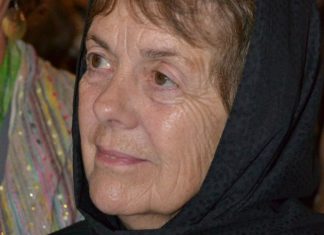Nestorian: If Christ is not two hypostases as He is two natures, then one of His natures does not subsist and does not have a hypostasis. If there is a nature which does not have a hypostasis, let your wisdom show it.
Orthodox: Among simple and individual natures it is not said that there is a nature without a hypostasis, but there is among composites, and from the different natures from which it is composed its wholeness is seen to be constituted as one hypostasis. Thus we say also concerning the mystery of the economy of the unity of Christ, that He is one perfect and complete hypostasis which unites the two natures, and is seen and known in both of them, so that there would not be made an increase in the number of the hypostases of the Holy Trinity. Or, if there is not able to be a nature without a hypostasis as we say, it is even more impossible to show a hypostasis without a person as you say. Therefore to where do you escape from teaching two persons?
Nestorian: First, confirm our word by examination; if Christ is a subsistance in the nature of His Divinity and at the same time a subsistence in the nature of His humanity. When we establish this there follows as a conclusion from [the subsistence of] each that either there is a quaternity, because of counting the human hypostasis, or a Trinity remains according to the word of our faith.
Nature of the divinity of Christ
Orthodox: We confess that the nature of the divinity of Christ has subsistence, and that the Lord’s own hypostasis is counted as is the Father’s. We do not deny the existence of the human nature, although we know that it subsists in the divine hypostasis and that this hypostasis is counted as an indivisible unity. For this reason [the humanity] is not counted in a separate and individual hypostasis apart from the hypostasis of the Word. We say there is nothing lacking that would be a loss from the completeness of a human hypostasis, but that [the humanity] was never in its own separateness from the [hypostasis of the Word] and [then] united to it. Rather, the [humanity] was known from the womb in the unity of God the Word.
Also [the humanity] is not seen or known as properly having its own hypostatic activity and operation. For the Only Begotten Son took it and willed that by it He become man, of His own strength, will, activity, and ruling of every hypostatic operation which in the economy is perfected. Also the constitution of a human body in the womb of the virgin was not for a human hypostasis of a certain man, but in order that by it the economy and revelation of God the Word would be accomplished for us, and that there would be a restoration and redemption of the race in it. On account of this His body is named completely His, because it is of His hypostasis by union, and there is not another man who is known separately in His own hypostasis.
Read More about Christ also subsists in His human nature






